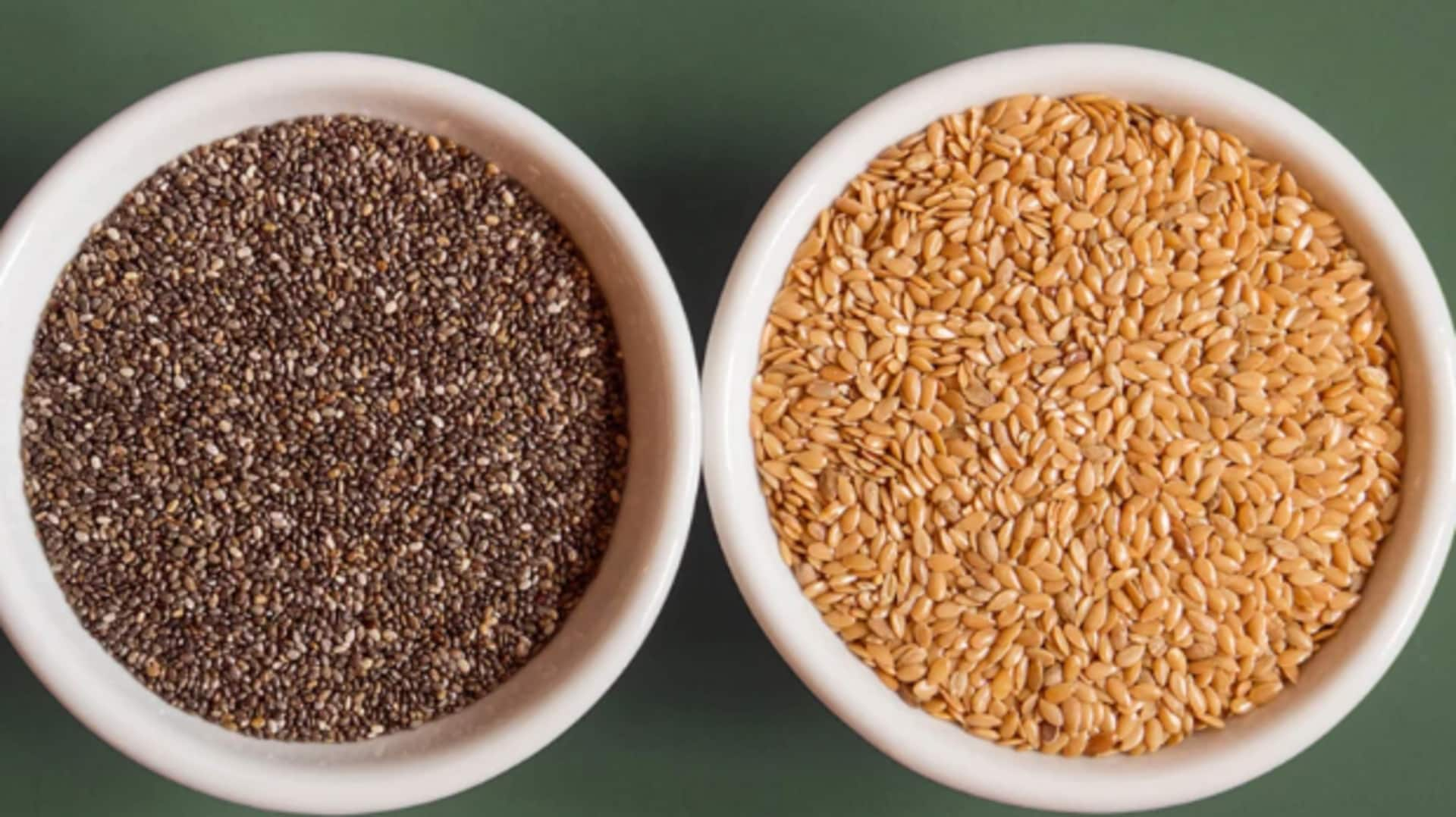
Chia seeds vs. flaxseeds: Omega-3 powerhouses compared
What's the story
In the realm of superfoods, chia seeds and flaxseeds reign supreme. These tiny powerhouses pack a nutritional punch, boasting an impressive profile rich in omega-3 fatty acids. While both seeds share a myriad of health benefits, they each hold their distinct advantages. This article explores the nutritional showdown between chia seeds and flaxseeds, providing insights to help you decide which seed might be the champion of your diet.
Comparison
Nutritional breakdown and Omega-3 content
Both chia seeds and flaxseeds are excellent sources of alpha-linolenic acid (ALA), a type of omega-3 fatty acid that's good for your heart. While a one-ounce serving of chia seeds provides around five grams of ALA, the same serving size of flaxseeds delivers a slightly higher amount, at 6.5 grams. Even with this difference, both seeds offer a substantial contribution toward meeting your daily omega-3 needs.
Fiber
Fiber content and digestive health
Apart from omega-3s, both these seeds are excellent sources of dietary fiber, which supports digestion and helps you feel satisfied. Chia seeds offer a bit more fiber with approximately 11 grams per ounce (28 grams), compared to flaxseeds with around eight grams per ounce. This high fiber content contributes to regular bowel movements and a healthy digestive system.
Antioxidants
Antioxidant properties and health benefits
Both chia seeds and flaxseeds are packed with antioxidants that fight oxidative stress and inflammation in the body. These include quercetin, kaempferol, myricetin in chia seeds, and lignans in flaxseeds. Notably, lignans also exhibit estrogenic properties, which may help reduce the risk of certain cancers. Although both are great sources, the specific types of antioxidants differ between the two, providing unique health benefits.
Culinary use
Usage in diet and culinary flexibility
As for how to add these seeds to your diet, both are versatile but have different preparation needs to maximize nutrient absorption. Flaxseeds should be ground for easier digestion, while chia seeds can be eaten whole or soaked to form a gel. Sprinkle either on smoothies, yogurts, oatmeal, or even in baked goods for added texture and a nutritional punch.
Storage
Storage tips for longevity
The right storage is key to keeping these seeds nutritious. Chia seeds don't need to be kept in the fridge. Just store them in an airtight container somewhere that doesn't get sunlight. They'll stay good for up to two years. Flaxseeds, both ground and whole, should be kept in the refrigerator to stop them from going rancid. They'll last for several months if you store them properly.